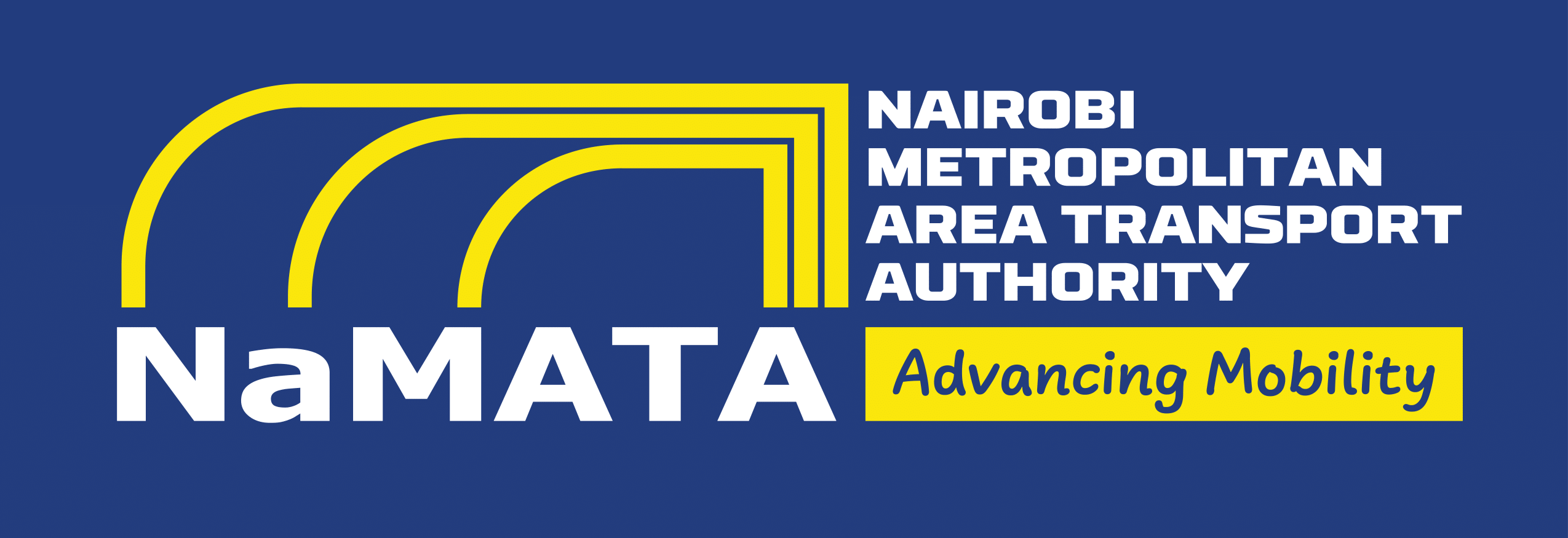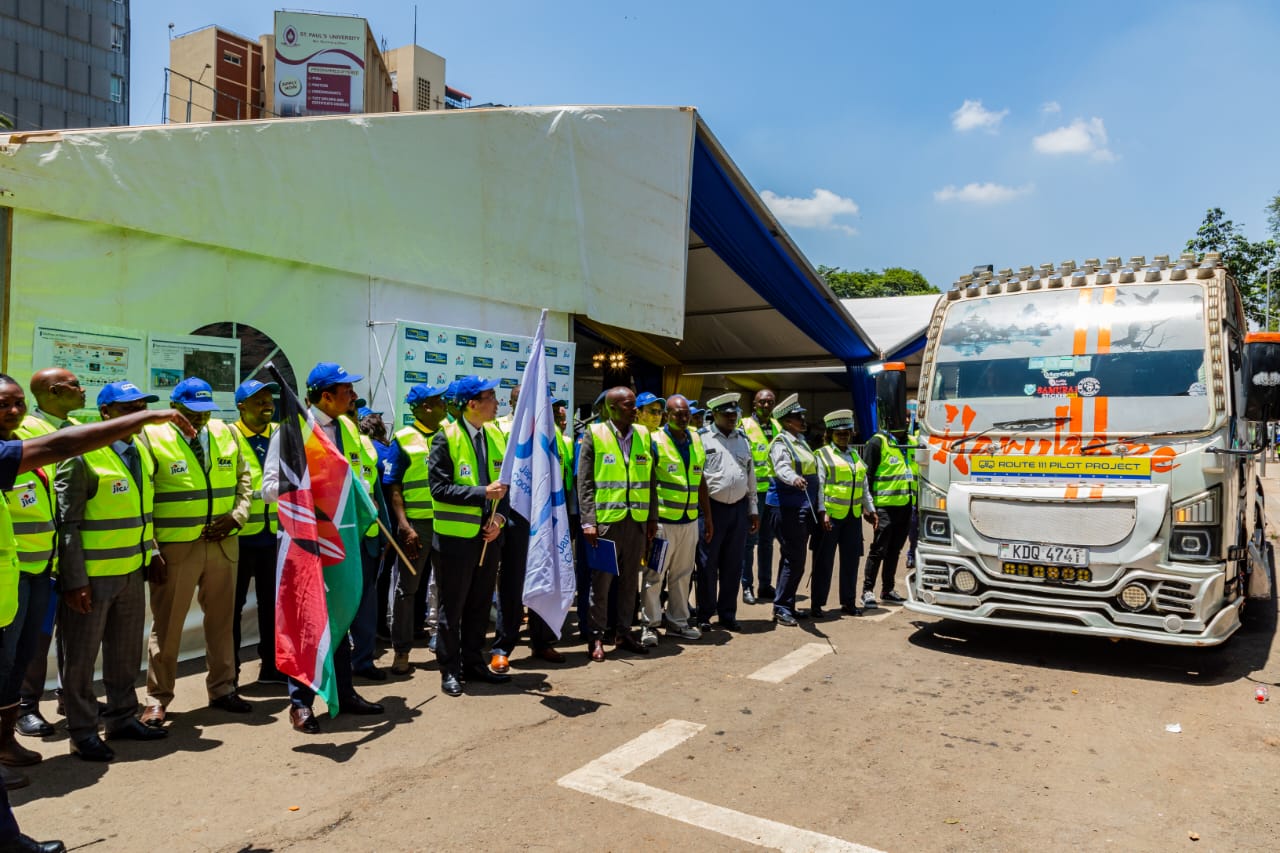We are thrilled to announce the official launch of the Route 111 Pilot Project, which took place on Friday 11th April 2024 at CBD – Pioneer Bus Station. This momentous event represented a significant stride toward the transformation of urban mobility in Nairobi, ushering in a new era of safe, reliable, and structured public transport.
The launch marked the culmination of a successful dry run phase and brought together key stakeholders, policymakers, development partners, and commuter representatives to celebrate the next phase in Nairobi’s journey towards a modern transport ecosystem.
The ceremony was graced by Principal Secretary Mohammed Daghar and Mr. Makoto Shinkawa, Chief Representative of the Japan International Cooperation Agency (JICA), who jointly flagged off the first official vehicles under the new pilot system. This symbolic act marked the end of the dry run and the beginning of a more structured and commuter-friendly experience for passengers using Route 111.
In his remarks, Eng. Francis Gitau, Director General of the Nairobi Metropolitan Area Transport Authority (NaMATA), emphasized the urgent need for a structured public transport system that promotes efficiency, safety, and reliability. He reiterated the Authority’s commitment to developing systems that not only meet the current demands of Nairobi’s population but also anticipate future growth.
Mr. Makoto Shinkawa, representing JICA, highlighted the importance of adopting global best practices to shape a modern, efficient, and inclusive public transportation system. He underscored JICA’s continued support in providing technical expertise and fostering international collaboration in the transport sector.
Mr. Nelson Mwangi, Chairperson of the Route 111 Operators Committee, added a critical voice from the ground, emphasizing the significance of cooperation among matatu operators. He noted that improved coordination and stakeholder buy-in are essential for achieving enhanced service delivery and commuter satisfaction.
The Principal Secretary Mohammed Daghar, stated the significance of the initiative as a major milestone for NaMATA, the State Department, the Ministry of Roads and Transport, and the county governments of Nairobi and Kajiado. He acknowledged the counties’ support in enabling the pilot through the allocation of bus stops, permits, and access to terminals. He reaffirmed the Department’s role in shaping a safe, efficient, and sustainable transport system through policy and standards, noting that the pilot aligns with the Bottom-Up Economic Transformation Agenda (BETA), which aims to improve quality of life by prioritizing public transport over car-centric infrastructure.
He noted that the pilot’s outcomes would help address urban mobility challenges and lead to more accessible, efficient, and environmentally friendly transport systems. He outlined four key focus areas: improving service quality through reliable and safe operations; enhancing operational efficiency through better route management and training; investing in infrastructure such as bus stops and terminals; and strengthening institutional capacity through skills development and knowledge sharing. Commending the partnership between NaMATA, JICA, county governments, and national agencies, he encouraged continued collaboration and assured that the State Department remains committed to providing guidance and resources to ensure the project’s success.
The Route 111 Pilot Project is a bold initiative aimed at streamlining public transport along one of Nairobi’s busiest corridors. By bringing together government agencies, private sector operators, development partners, and commuter representatives, the project lays the groundwork for a safe, reliable, and dignified commuting experience.
The pilot will serve as a benchmark for future interventions, offering critical insights into route optimization, vehicle scheduling, passenger flow, and operational efficiency. It is a cornerstone initiative in NaMATA’s broader goal to build an integrated public transport system for the Nairobi Metropolitan Area.
The launch of the Route 111 Pilot Project is more than a transport milestone, it is a vision for the future of urban mobility in Kenya. It aligns with Nairobi’s long-term objectives to reduce congestion, lower emissions, enhance commuter safety, and foster economic growth through improved access and mobility.
As we officially move into the pilot phase, we invite all commuters, stakeholders, and partners to actively engage with the project, share feedback, and contribute to the success of this transformative journey.

